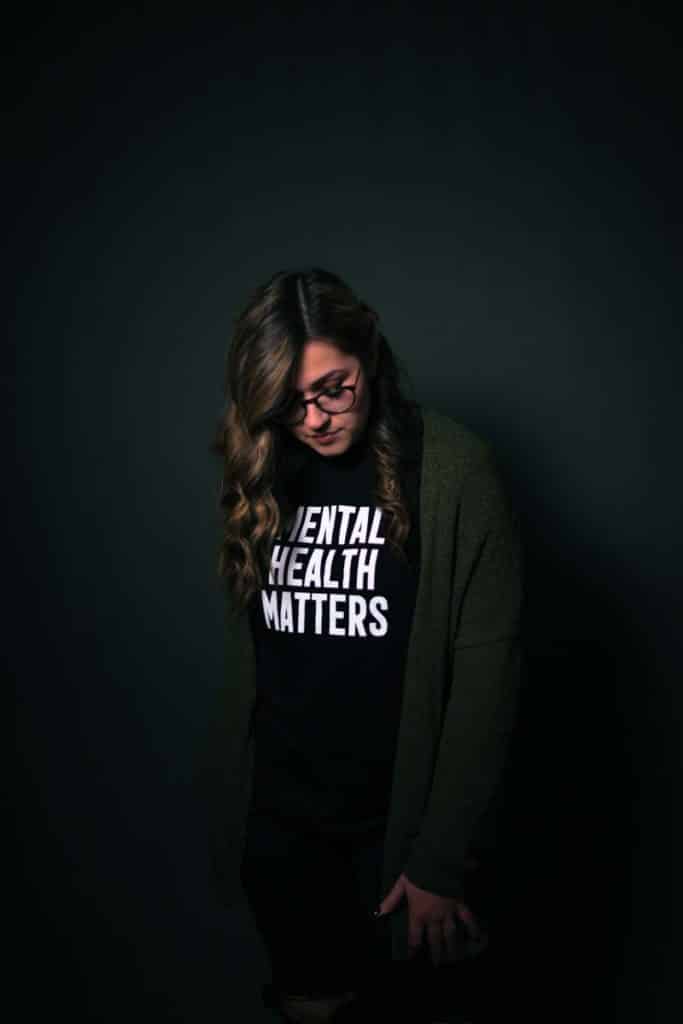Part of the treatments conducted by alcohol rehabilitation centers focuses on mental health or behavioral disorders. Commonly known in treatment circles as a “dual diagnosis,” according to the National Survey on Drug Use and Health (NSDUH), 45% of people with addiction have a co-occurring mental health disorder. By seeking treatment for addiction to a substance and co-occurring mental health or behavioral disorder, you will stand a better chance of achieving a healthy and fulfilling life.
Common Mental Health Issues Alcohol Rehabs Focus On
There are mental health and behavioral disorders that become present alongside addiction, sometimes, these disorders are the underlying cause of the addiction, and some of the common mental health disorders include the following:

Attention Deficit Hyperactive Disorder (ADHD)
Individuals with ADHD might be more inclined to abuse alcohol or substances as a coping mechanism. Many individuals are prescribed stimulants to treat the condition, however, this can lead to habits forming, and a toxic pattern of abuse.
Bipolar Disorder
Approximately half of the people with bipolar disorder can struggle with an addiction to alcohol. This usually means that for the individual, alcohol or drugs provide temporary relief from stressful situations and manic episodes.
Borderline Personality Disorder (BPD)
Approximately two-thirds of people with BPD have turned towards alcohol or substance abuse. Studies have highlighted that BPD and addiction can occur together.
Depression
Many individuals attempt to self-medicate their symptoms of depression with alcohol or drugs, and due to the nature of stimulants in general, this can exacerbate the problem. If an individual experiences a pre-existing depressive condition, this can make the problem worse. With an estimated 1 in 10 adults in the USA reportedly suffering from depression, it is an important factor of addiction to address.
Generalized Anxiety Disorder (GAD)
Affecting 18% of the adult population, this is the most common mental condition in the United States. People who experience GAD may be more likely to abuse alcohol to manage their symptoms.
Obsessive-Compulsive Disorder (OCD)
OCD causes many obsessions and compulsions, and people with OCD tend to suffer depression and anxiety because of involuntary behaviors, meaning they could turn to alcohol to manage the symptoms, or just to relax.
Post-Traumatic Stress Disorder (PTSD)
If a person develops PTSD, their brain produces fewer endorphins than a healthy brain, which can result in turning towards alcohol to feel happier. This is highly common in soldiers and veterans. According to the US Department of Veteran Affairs, 75% of soldiers and veterans reported repetitive alcohol abuse after a traumatic or violent event during combat.
The Factors That Aggravate Mental Health or Alcohol Use
People diagnosed with a mental health condition are twice more likely than an average member of the population to suffer from a substance use disorder. Individuals who abuse alcohol or drugs are more likely to develop a mental health disorder. There are a number of factors that can aggravate either a mental health disorder or substance abuse:

Brain Responses
Abusing substances can cause symptoms that mimic a mental illness.
Genetics
An individual’s genetic predisposition could make them more likely to develop a mental disorder or addiction. As research shows that genes can make up between 40% to 60% of someone’s susceptibility to an addiction, this is a very important component to address.
Environmental Triggers
For example, persistent anxiety, chronic stress, or a traumatic event can trigger a mental disorder or addiction.
Exposure at a Young Age
People that experiment with alcohol at a young age could develop issues with abuse or mental health disorders later in life as young adults and adolescents are more prone to brain damage than older adults.
A co-occurring disorder, such as any of the mental health disorders mentioned here, in combination with symptoms such as avoidance of social activities, self-neglect, erratic or impulsive behaviors, as well as poor performance, can spur an individual to self-medicate.
People with a severe mental illness are four times more likely to be heavy alcohol users and mental health is such an important aspect of treatment because of how it is intertwined with alcohol or substance abuse.
When therapy is structured to treat a dual diagnosis, this is a way to help the individual in a holistic manner. Rather than providing one type of treatment, it’s important to recognize that addiction is also a mental health problem in itself, but also the fact that mental health and addiction are not two separate things. This is why we focus on mental health as much as the underlying addiction through our intensive outpatient and outpatient programs. It is important that the mental health components of addiction are treated as much as the addiction itself.

